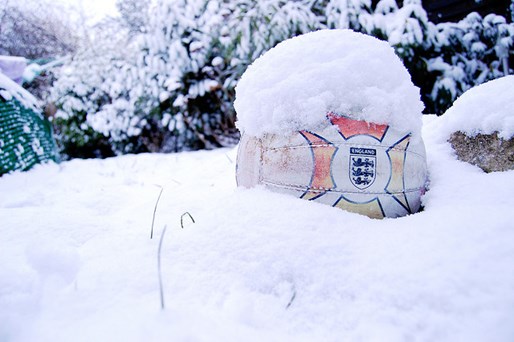Comment
Climate changes in sport

Photo (c) by Flickr user scpgt. Used under a Creative Commons 2.0 licence.
28.12.2010
We saw this recently when Qatar was chosen to host the World Cup in 2022. Now they are talking about moving the World Cup to the winter in order to avoid the scorching heat of Qatar summers. The number of requests to move sporting events because of the weather will probably only increase in the coming years.
Winter break
After England lost the battle for the 2018 World Cup and Qatar won the right to host the 2022 World Cup, the winter break in football has been fiercely debated. The debate takes place on two levels.
Firstly, the British have realised that their only chance to win in a World Cup context is to win the football tournament and not right to host the Cup. Medical research shows that most injuries happen to players who play in January and February. This means that players in Spain, Germany and Italy incur fewer injuries because they have a winter break – unlike players in England. You have to have well-rested players to win the World Cup and other competitions, which is gradually being recognised in England.
Qatar is too hot
Secondly, the upcoming World Cup in Qatar has led to a discussion about moving the Cup to the winter because it's so hot in Qatar in the summer. This will not go down well with the British, partly because a World Cup does not just last for one month for the teams that go furthest in the tournament, but it also requires preparation beforehand and recovery afterwards. In reality, a World Cup lasts two months. A two months’ break in the Premier League is long time and it can kill the interest in football in England (and elsewhere).
Ramadan 2022
In World Cup years, most football leagues adjust their schedules to fit around the World Cup. In Norway, for example, they adapt to the WC by starting their national season earlier or ending it later to accommodate a longer break in the middle of the season.
Moving the season might be the solution for the Qatar World Cup too. The Cup could either be arranged before the season starts in the major leagues or just after it is completed. But this is not unproblematic. Religion can be a challenge. According to the Muslim calendar, the Ramadan starts on 2 April in 2022. This means that placing the World Cup in April is out of the question. This leaves very few available months if you also have to accommodate the major leagues in the world. The London Olympics has encountered great difficulties because part of the 2012 Olympics takes place during the Ramadan.
Spectator-free World Cup
Maybe the World Cup will end up taking place at it’s usual time – in the middle of summer – with air-conditioned stadiums, and with most football fans at home in front of the TV because they cannot bear to go to a country where there is almost 50 degrees.
The TV channel Al-Jazeera – which has its headquarters in Qatar and which holds the television rights to championships such as the Premier League – will surely be pleased if this happens, as it will probably get the television rights to World Cup too. For the environment, this will also be the best solution because fewer people will fly to Qatar. It will also solve the endless security problems and make it unnecessary to joke about homosexual activities before and after the games, as Sepp Blatter did a little while ago.
Betting on the weather
One player has not yet been active in the discussion of changing the game dates: bookmakers. They will certainly make themselves heard later in the process. During the winter months this year, many bookmakers lost money because the games were cancelled.
Betfair – the world's largest bookmaker company – has had a dramatic fall in share price in recent months partly because of the weather situation in England. The revenues of several bookmaker companies have probably also fallen recently. Some of the loss they have earned back by letting people bet on the weather, but it hardly compensates for the loss incurred by cancelled games.
When you also consider that many bookmaker companies are the main sponsors of several teams in the Premier League (and in other big leagues), long breaks in the middle of the football season will cost them a lot of money, both because there are fewer matches to bet on and because they will lose a lot of valuable television exposure.
Low commitment to the environment
It is unlikely that concern about the weather among the Brits, football players, FIFA and bookmakers will create an environmental commitment to the World Cup. The only major example of an international sports event leading to increasing environmental awareness is the Beijing Olympics. When limitations on the use of cars were introduced and most factories in Beijing were closed in order to avoid air pollution during the Olympics, it created a greater environmental awareness in China and Beijing.
Cold summer?
Pollution not only creates global warming, but also extreme and strange weather. Perhaps FIFA will be saved by an extra cold summer in Qatar in 2022?
This article first appeared on Andreas Selliaas' blog 'Sportens Uutholdelige Letthet' on 22 December 2010. Follow Andreas' blog (in Norwegian) on sportensuutholdeligeletthet.blogspot.com





